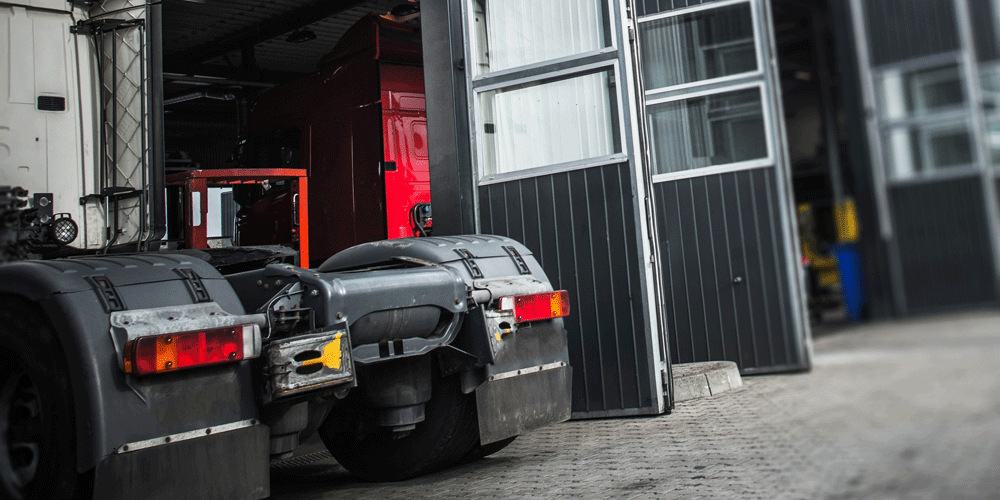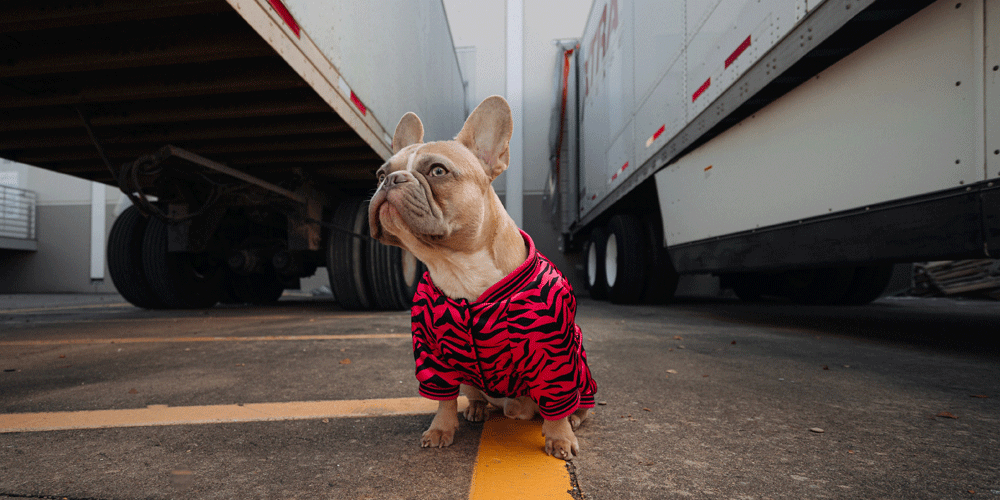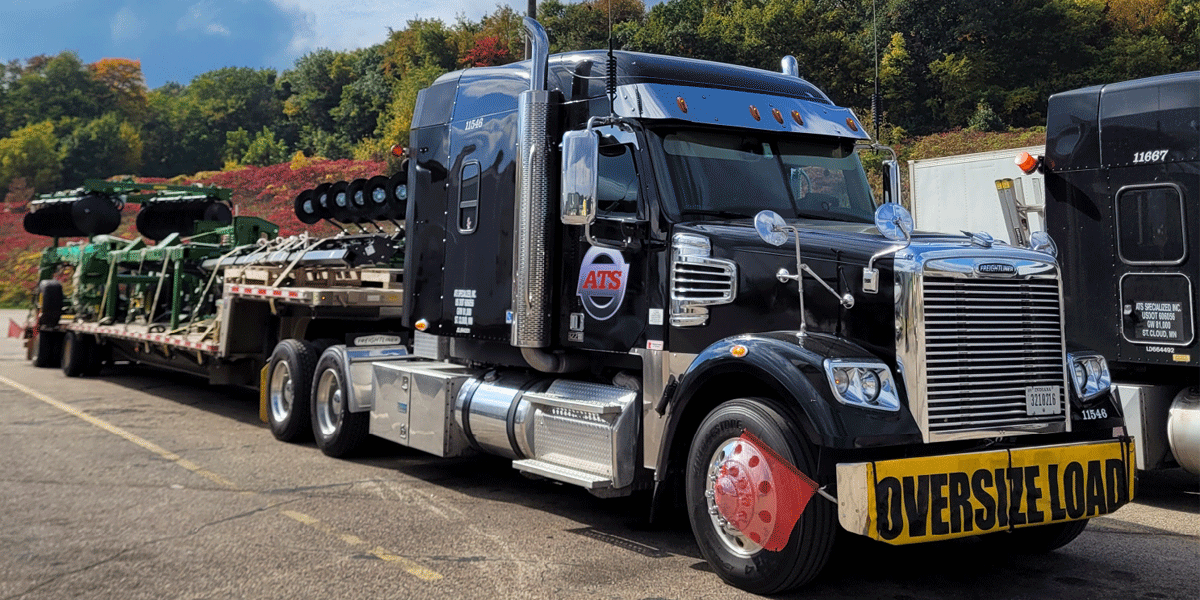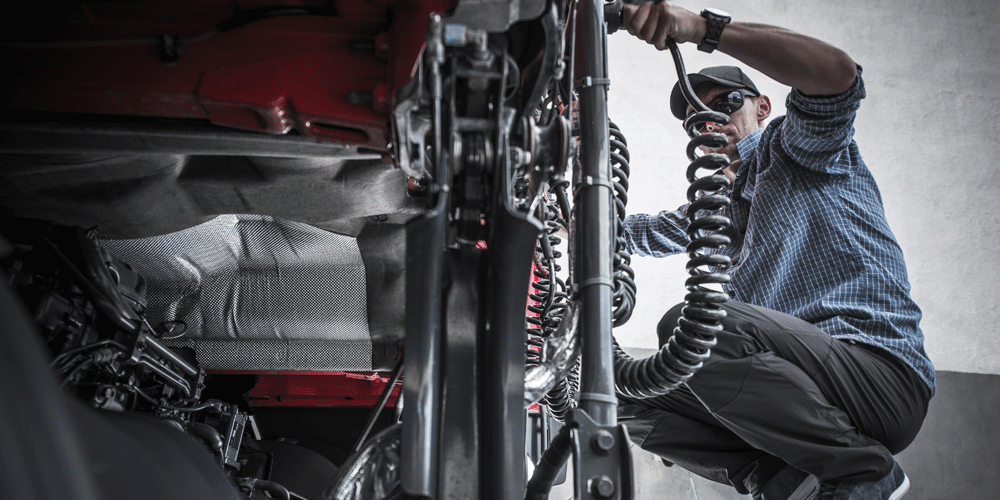Jason started with ATS in October 2010 as the prep shop foreman running the unmanned trucks department. He eventually moved into the service shop foreman position and then the trailer shop service leader role. He is currently the shop manager at ATS, a position he has held for just over four years.
Are you about to turn in your lease truck? Whether you’re switching carriers or jumping into another, newer truck, the last thing you want is to have to pay back a ton of money to get your truck in good shape for the next driver.
It’s like when you’re renting an apartment. You put in a deposit when you start renting and you take care of your apartment to get that deposit back. If you drill a ton of holes in the walls and destroy your unit, you aren’t getting your money back. Your deposit will be used to fix up the unit for the next tenant.
When you lease a truck, you may not necessarily have to put a deposit down (depending on which company you lease with), but you might instead have to pay money back to the company when you leave. Because a lot of drivers don’t understand what goes into getting a truck ready for a new driver, costly chargebacks are probably more common than you think.
Moral of the story? Keep your truck in good shape. From fixing maintenance issues to forbidding Rover to chew up the interior, there are several things you can do to avoid costly chargebacks.
I work in the shop at Anderson Trucking Service (ATS) and see the condition of trucks when they’re turned in. I know exactly what the most common issues are and why drivers receive chargebacks.
In this article, I’ll explain what a chargeback is and how you can implement best practices to avoid them. When you’re done reading, you’ll feel confident about how to take care of your truck to avoid surprise charges.

What is a Lease Chargeback?
A lease chargeback occurs when a driver turns in their lease truck and then is charged for the fixes required to get it back to the optimal condition — performance- and appearance-wise.
This includes making repairs, removing/fixing truck modifications and cleaning the truck. Repairs include everything from replacing the tires and changing the oil to fixing a dent or replacing major engine components.
Your contract should state how you’ll be charged back for those items. Often, these fees will be charged back first against your maintenance account and then your settlement (if your maintenance account didn’t cover the fees).
One of the reasons you build up your maintenance or reserve account (and the reason many truck leasing companies require regular deposits to these accounts) is to help pay for minor fixes and breakdowns on the road. Funds from these accounts are also used to get the truck ready for the next driver.
Nothing in your reserve account? It’ll come out of your settlement. If worst comes to worst, you could end up not receiving a final settlement at all and owing the company.
We (and other truck leasing companies) want all of our drivers to be in trucks that are in good shape; that’s why the shop fixes everything. You want to get into a nice truck, right? So does every other driver. Your truck is your home on the road. We want to make sure the next driver is comfortable and safe in the truck after you. The shop isn’t just fixing things to fix them.
How to Prevent Lease Chargebacks
Whether you’ve been in the truck for six months or six years, there’s going to be some wear and tear on the tractor. If you take good care of your tractor by utilizing the following tips, you can ensure you don’t owe the company when you leave.
However, if you don’t take care of your tractor, you may be left with hundreds — or even thousands — of dollars owed in chargebacks.
Review Your Contract
Before you do anything it’s a great idea to review the contract you signed. (In reality, you should closely review your lease agreement before you ever sign anything.) Circle any sections or phrases that talk about payment. What could potentially put you in breach of your contract? What behaviors could cause you to owe money when you turn your truck in once the lease term is up?
Make careful note of these charges and make sure you’re following the rules of the contract you signed.
Your contract should also address items you may need to turn in once your lease is up. Failure to turn in these items (or taking items off the truck) will result in a charge.
Keep Up On Preventative Maintenance
It’s always a good idea to keep your truck running optimally by regularly taking it to the shop for routine maintenance. This is where you can address seemingly minor issues with your tractor and get them looked at before they become more serious problems. You’ll be left with a truck that runs great and it’ll cost less money to operate when it’s running efficiently.
Doing so will also ensure you’re following warranty guidelines set forth by original equipment manufacturers (OEM). Failure to follow regular service intervals can void your warranty. Imagine taking your truck in for a major engine repair thinking it’ll be covered, only to be denied coverage because you missed the window to perform your overhead valve set as stated by the OEM.
Shop visits are closely tracked and OEMs will look at the records. If they decide you could’ve prevented a larger issue by getting your truck in on time for a standard service interval, they won’t cover the repair. Unfortunately, we do see this happen more often than we’d like.
Similarly, if you delay a repair because you want to stay on the road, you can risk missing that window of warranty coverage. We’ve also seen this happen in our shop, where a driver was a few thousand miles past getting warranty coverage because they didn’t come in for the repair soon enough.
You’re saving a dime now to lose a dollar later. Make the time to get your tractor in the shop. Be proactive; don’t postpone visits to the shop.
Take Your Truck in for Repairs — Even Minor Ones
No matter how seemingly minor they are, take care of your repairs as they arise. This will prevent bigger issues in the future.
Tractors nowadays are built differently; they aren’t like they used to be. There are a lot of computers and sensors on tractors now. If something starts to go wrong and you don’t fix it in a timely fashion, it can become a bigger problem. For instance, if you have a check engine light on, don’t ignore the issue until your engine starts to derate.
And if you never address the issue, you need to understand that the shop will fix it before it goes to the next driver. You’ll end up paying for the repair one way or the other. Why not take care of it before it becomes a major issue?
Oftentimes, minor issues pop up on the truck that might not be an immediate concern at the moment but will require attention down the road. Or, it might not be an item the Department of Transportation (DOT) requires drivers to fix immediately before getting back on the road. Drivers will choose to put the fix off for so long that a minor issue becomes major.
Don’t ignore the leaks and knocks. They can quickly become major problems. Fixing it now, while it’s a minor problem, can save you a lot of money in the long run — whether you end up with a nasty breakdown or the shop catches it when you turn your lease truck in.
Taking care of minor issues also matters when thinking about cosmetic issues. If you have a small hiccup on the road — maybe you scraped against something or you have a small ding in the door — go through the claims process. You’re better off making a claim now and hoping it’ll get covered rather than it coming out of your maintenance account when the shop fixes it.
Avoid Permanent Tractor Modifications
A lot of drivers don’t think it’s much of a deal to permanently modify their truck by adding a new shelf here and screwing something into the dash there. When you consider how costly interior parts are, it is a big deal. Would you want a truck with a dash full of holes? Probably not, and neither do other drivers.
If your lease agreement says you can’t make permanent modifications, don’t. If you’re unsure if a modification goes against your agreement, talk to your company before you do anything.
It’s pretty easy to run up a bill by failing to take care of the interior of your truck. It shouldn’t go without saying that the supply chain still isn’t fully operational, so it can take a long time to get some of these parts in. Not only are the parts costly and not always readily available, but they can also take a lot of time to remove and reinstall.
Listen, we know the chrome additions look cool and the fancy extra lights and decals are fun. However, they aren’t actually adding value to your truck. It’s simply cosmetic. Truck leasing companies don’t want one or two tricked-out trucks in the fleet for drivers to choose from. So, more likely than not, it’ll all be removed in the shop anyway to get it back to standard condition.
Keep it Clean
Shops expect normal wear and tear on your trucks. They expect to do some detailing here and there to make sure the tractor is clean for the next driver. However, turning in a filthy tractor can result in a lot of chargebacks.
Dirty trucks can lead to bigger problems, like bed bugs and cockroaches. Pets and smoking cause odors that permeate the interior. If you have a pet in your truck, understand it’s hard to get their hair, smell and fluids out of the truck. They get into the upholstery and make it hard to clean.
No one wants to end up in a truck that smells like a wet dog or cat. Shops end up tearing up the flooring and gutting the entire truck — new seat, new flooring, new everything.
Our shop has seen everything from tractors with bed bugs or cockroaches to trucks covered in pet hair and fluids. We’ve really seen it all. And while we don’t judge drivers, we just want you to understand the costs associated with this.
If you want to take Rover on the road with you, by all means do it (as long as the company has a pet policy that allows it), but make sure you understand the costs associated with doing so. For instance, if your dog is a chewer, know that the shop is probably going to have to replace your seats and you’ll be charged for it.

Handle With Care
In general, treat the tractor like it’s a treasured possession. Don’t drive it rough and dangerously. Avoid behaviors that cause unnecessary wear and tear on the truck. Examples include excessive idle time, driving in an unsafe manner and generally not taking good care of the tractor. If you ride it hard, you can end up paying for it one way or the other — whether you get into an accident or you wear out your equipment.
Believe me when I say OEMs look at shop records and the tractor’s computer system. They will go into the computer system and they’ll see how long you idled your truck. If there are too many engine idle hours on the truck, they may deem your excess idling abusive and neglectful — and therefore, your problem. They have the right to deny coverage if it’s apparent your behaviors led to the problem.
What to Expect from the CES Lease Program
No driver wants their maintenance account, settlement or completion bonus to be wiped out because they didn’t maintain their truck. Understanding what it takes to get your truck into tip-top condition for the next driver leasing the tractor can help you prevent some of the charges. Remember the following tips:
- Review your contract
- Keep up on preventative maintenance
- Take your truck in for repairs
- Avoid permanent tractor modifications
- Keep it clean
- Handle with care
When you treat your truck well, you won’t have to worry about insane shop bills and chargebacks after you turn your truck in.
You may be unsure how to read your leasing contract and that’s okay. Follow these tips for understanding your independent contractor agreement.
If you’re curious about leasing with ATS' affiliate company, Competitive Equipment Sales (CES), learn more about what you can expect from the lease program here.


